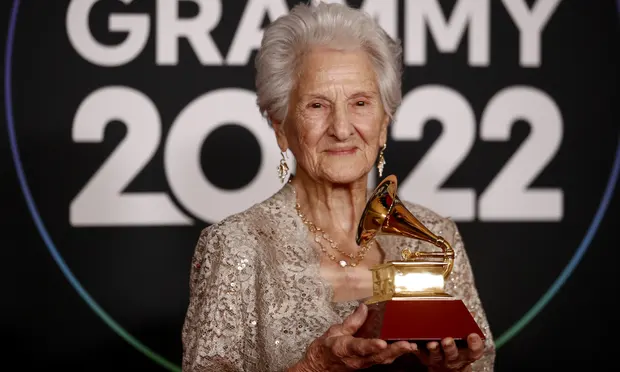Officially, age is a protected characteristic, meaning that it is out of sync to go about asking people about their age as a requirement for this or that. But that is the official narrative. Almost everywhere else, the first question is your DOB, (date of birth) which reveals the age that is, officially, not required. That is the first conundrum in that the world doesn’t appear to know what to do about age.

The strongman of Russia
The second conundrum here is what we can see on the ground. In Malaysia, grand politician, Mahathir Muhammad, has just contested election at 95. The immediate past president as well as the incumbent president of the United States of America are all in their late 70s. Those of China and Russia are not too far behind as they will all being joining that league shortly. Luiz Inacio Lula da Silva who is taking over power in Brazil in January is 77 years old. Muhammadu Buhari, incumbent president of Africa’s most populous country – Nigeria is 79 years, meaning he too ascended power a year above the 70 mark. And if Peter Obi of Nigeria’s Labour Party doesn’t perform an electoral miracle next February, then the president of Nigeria from May 2023 will either be a 77 year old Atiku Abubakar or a 71 year old Asiwaju Bola Tinubu.
There is thus something to suggest that we are in the age of grand oldies across the world. And it is not only in politics but also in the creative and cultural domain which is the point in Intervention bringing up this stuff from The Guardian which originally published it under the title Angela Álvarez crowned best new artist at Latin Grammys – aged 95, with the rider: Cuban American, who started recording career at 90 after decades of performing for family and friends, says ‘it’s never too late’ – Intervention

Xi Jinping of China
Don’t ever tell Angela Álvarez it’s too late for dreams to come true – the 95-year-old just brought home a Latin Grammy for best new artist, becoming the musical award show’s eldest winner ever.
The Cuban American musician’s crowning moment came after decades of writing songs but performing them only for friends and family – until, at the age of 90, she went to the Avalon, the historic Hollywood nightclub, and gave her first concert.
Her grandson, Carlos, eventually recorded her songs on to an album with the help of the actor and fellow Cuban who hosted that concert: Andy García. The self-titled record came out last year, setting up her nomination at Thursday’s edition of the Latin Grammys and a shared win with Silvana Estrada.
“To those who have yet to make their dreams come true, know that although life is hard, there’s always a way out and with faith and love everything can be achieved,” Álvarez said in her acceptance speech.

US’s President Biden
It’s hard to overstate some of the obstacles she had to overcome to make her mark on the music industry.
Growing up in pre-revolutionary Cuba, her father and grandfather forbade her from pursuing her love of music. But she wrote songs in secret, as she got married and had children.
Then the Cuban revolution that led to decades of leadership under Fidel Castro unfolded, and Álvarez made what she has called her life’s most difficult decision: sending her four children to the United States. They went as part of Operation Pedro Pan, which saw more than 14,000 children sent to the US during Cuba’s revolutionary era between 1960 and 1962.
Álvarez eventually joined her children in the US, delayed by paperwork problems, the Miami Herald reported. The family settled in the capital of Louisiana, Baton Rouge. But life continued testing her faith – she lost her husband and her only daughter to cancer.

Can he turn the contest into a generational one?

Alhaji Atiku Abubakar and Asiwaju Bola Tinubu, members of the club of 70 and above in the 2023 presidential contest in Nigeria
Nonetheless, she kept up with her songwriting and singing, mostly sharing her work only with those closest to her.
That changed when she agreed to take part in a documentary named Miss Angela, which chronicles her upbringing in Cuba and her preparing for her first concert at the Avalon. The documentary captured the moment that her host García – the Academy Award nominee – introduced himself and joked: “I heard you needed a bongo player.”
García, whom Álvarez described as her hero in Miss Angela, later gave her a role in the Father of the Bride remake he starred in. In the movie, she sings the Cuban musical standard Quiéreme Mucho, which means love me a lot.
Álvarez’s composer and producer grandson, Carlos, gave her the idea to go out to Los Angeles and record her self-titled debut album, People.com reported, citing the music publication Billboard.
“I called her up and I said, ‘Nana, do you want to do this?’ First she said [in Spanish], ‘I’m not going to Los Angeles! For what?’ And I say, ‘To record your album!’ And she’s like, ‘OK, I’m there!’”
After winning best new artist alongside Estrada at the 23rd annual Latin Grammys on Thursday, Álvarez encouraged all dreamers to keep their wildest hopes burning bright as she basked in front of a standing ovation at the Mandalay Bay Michelob Arena in Las Vegas.
“There are people who give up, but I did not give up – I always fought,” she said during her speech, which she dedicated to Cuba, according to the Los Angeles Times. “I promise you – it’s never too late.”




























